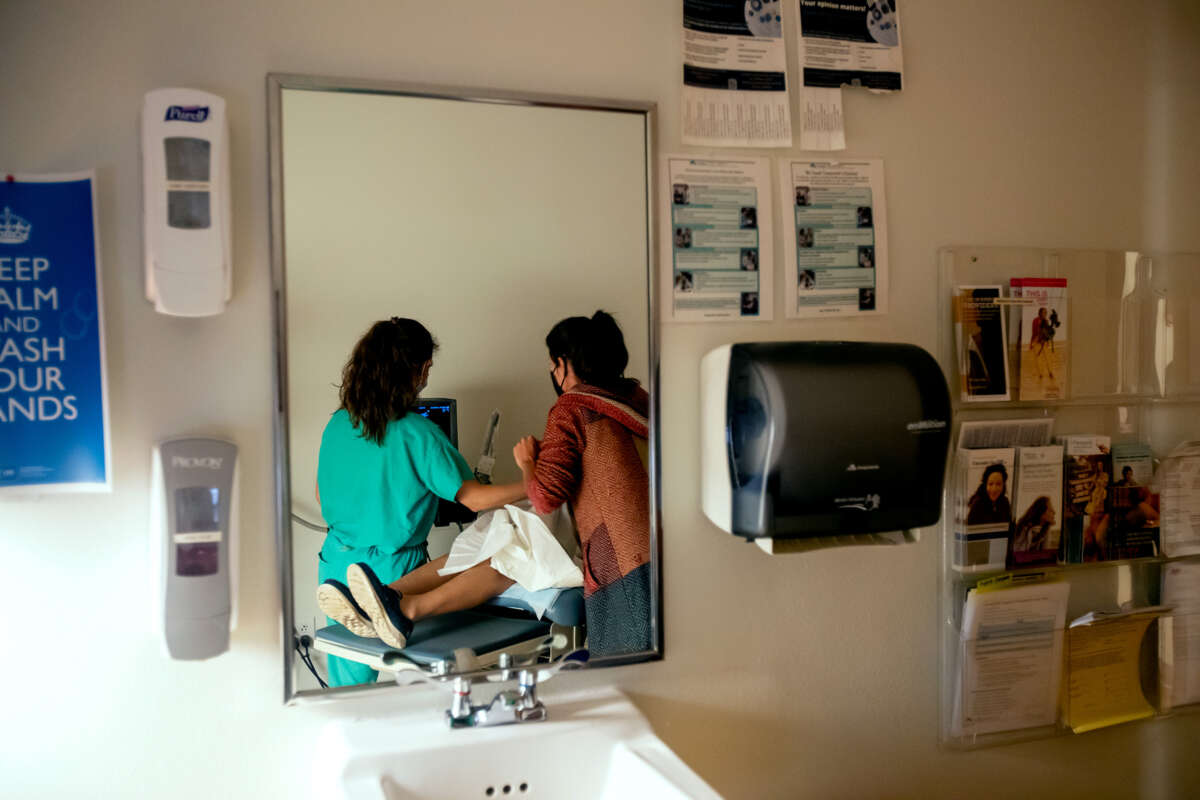This week, the Equal Employment Opportunity Commission (EEOC) finalized its Pregnant Workers Fairness Act regulations, after being criticized by conservative lawmakers and religious organizations. Part of the update included a clarification that accommodations, like a leave of absence, under the law apply to abortion care.
The EEOC said it received approximately 54,000 comments — “most of which were form or slightly altered form comments from individuals,” the agency said — urging them to exclude abortion from the definition of “pregnancy, childbirth or related medical conditions.” But abortion-related protections are consistent with Title VII of the 1964 Civil Rights Act, the EEOC said.
“In the final regulation, the Commission includes abortion in its definition of ‘pregnancy, childbirth, or related medical conditions,’ as proposed in the NPRM and consistent with the Commission’s and courts’ longstanding interpretation of the same phrase in Title VII,” the final rules concluded.
The law applies to all industries and employers with more than 15 employees. While the law passed in December 2022 and went into effect in the summer of 2023, it wasn’t until Monday that the EEOC released its final regulations and made a concentrated effort to clarify abortion care is included.
In the final document, the EEOC further elaborated by stating that the Pregnant Workers Fairness Act is a “workplace anti-discrimination law.” It doesn’t mean that taxpayers and funding abortions or require that an employer-sponsored health plan has to cover a procedure. It simply means that, like the Americans with Disabilities Act (ADA), accommodations — like time off for an abortion procedure or to recover — must be granted, as long as accommodation is reasonable and don’t post an undue burden on the employer.
Daphne Delvaux, an employment attorney and founder of The Mamattorney, a platform educating women on their rights at work, told Salon the rule ensures that employees who are pregnant, and might choose to terminate their pregnancy, “are able to continue participating in the workforce,” by seeking reasonable accommodations from employers.
Delvaux emphasized that this doesn’t mean it’s “a categorical mandate to provide an abortion leave,” adding that some of the media coverage around the change has been “a bit misleading.”
“The employer has to provide time off for medical needs related to pregnancy and childbirth, of which abortion is one of them,” Delvaux told Salon, adding this was “already the law.”
In a way, Delvaux said, the Pregnant Workers Fairness Act is an extension of the ADA. However, the ADA was “quite restrictive” for pregnant and postpartum workers.
“A lot of the employees wouldn’t kind of meet that high bar of what constitutes a disability,” Delvaux said. “What the Pregnant Workers Fairness Act decided is that pregnancy and postpartum related conditions and limitations fall within accommodation laws.”
For instance, under the Pregnant Workers Fairness Act, a pregnant worker could have morning sickness and request time off because they feel sick or request the option to work remotely. A pregnant worker can also request time off, or any other reasonable accommodations, for fertility treatments, extreme fatigue, depression, insomnia, pelvic pain and more.
“What’s different about the Pregnant Workers Fairness Act is that the law says that if the essential functions of the job can be done later, that they’d have to be temporarily suspended,” she said. “So that in and of itself kind of creates the potential of more leaves of absences. It’s kind of a new revolutionary thing — in the past, employees could ask for accommodations, but only if they could still perform the essential functions of the job.”
Notably, the law provides protections in states where abortion care is nearly banned and in states where people are being forced to travel to access care. For these pregnant workers, Delvaux said she wouldn’t necessarily recommend women explicitly stating they’re getting an abortion to their employers. Instead, she’d recommend saying that the worker experienced infant loss and doesn’t want to discuss it in more detail. This would require revealing the pregnancy in the first place, but that’s how employees can be protected by the law.
“Now, if we want to remove the taboo and stigma on abortion, you can absolutely be bold,” Delvaux said. “It’s going to depend on the individual woman and also the workplace setting. And in progressive places, it might even be celebrated.”
Kimberly Inez McGuire, executive director of URGE (Unite for Reproductive and Gender Equity), told Salon that time off is one of the biggest barriers people face when trying to access both prenatal and abortion care. The Pregnant Workers Fairness Act, McGuire said, is a reminder that “pregnancy care and justice for pregnant people applies both for people who need abortion care and people who are looking to continue their pregnancies.”
“The struggles and the needs of pregnant people, whether they’re going to become parents, or whether they need an abortion, are very deeply connected,” McGuire said. “I think it’s important to consider legislative solutions and policy solutions that allow people who are pregnant to take time off for a whole range of reasons, whether that’s to get an abortion, whether that’s to get prenatal care, whether that’s because someone has been put on bed rest because they have a high-risk pregnancy.”
Media that fights fascism
Truthout is funded almost entirely by readers — that’s why we can speak truth to power and cut against the mainstream narrative. But independent journalists at Truthout face mounting political repression under Trump.
We rely on your support to survive McCarthyist censorship. Please make a tax-deductible one-time or monthly donation.
